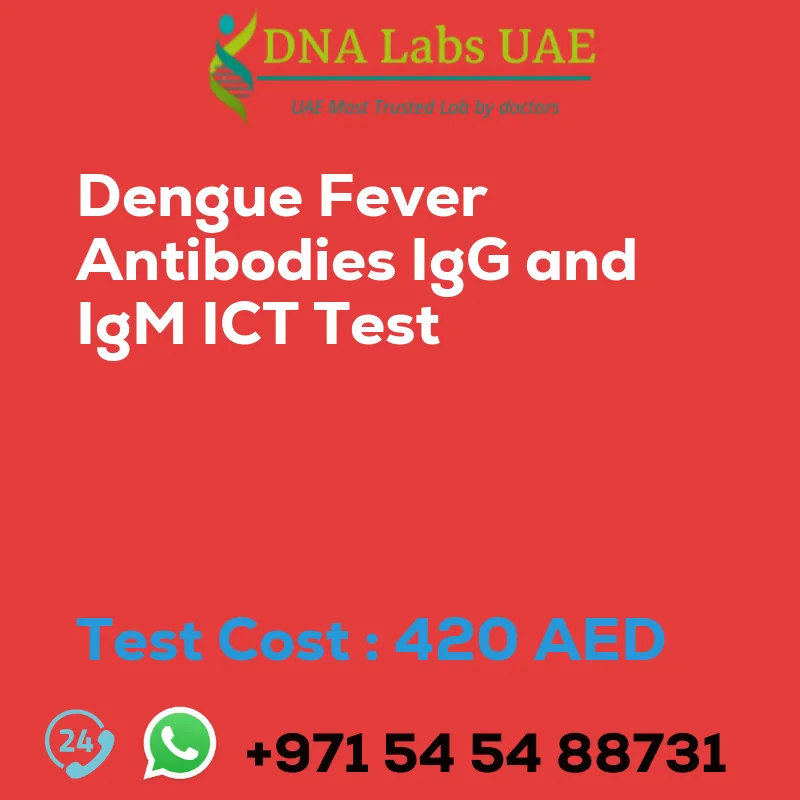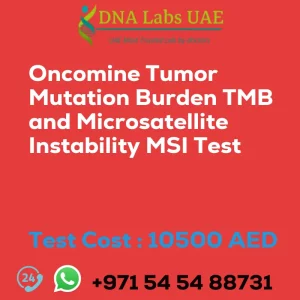DENGUE FEVER ANTIBODIES IgG and IgM ICT Test In Dubai
Understanding Dengue Fever and the Importance of IgG and IgM ICT Tests
Dengue fever, also known as break-bone fever, is a viral infection that spreads through the bite of infected mosquitoes. It is a significant health concern in tropical and subtropical regions, including parts of the UAE. In this article, we will delve into the symptoms of dengue fever, its causes, and the crucial role of IgG and IgM ICT tests in diagnosing and managing this disease.
Dengue Fever Symptoms
Dengue fever symptoms can range from mild to severe. Common symptoms include:
- High Fever: A sudden onset of high fever, often as high as 104°F (40°C).
- Headache: Severe headache, particularly behind the eyes.
- Joint and Muscle Pains: Severe joint and muscle aches.
- Nausea and Vomiting: Frequent nausea and vomiting.
- Rash: A flat, red rash may appear over most of the body.
- Swollen Glands: Swollen lymph nodes.
In severe cases, dengue fever can lead to more critical symptoms such as severe abdominal pain, persistent vomiting, bleeding from the nose or gums, and difficulty breathing. These severe symptoms can be life-threatening and require immediate medical attention.
What is Dengue Fever?
Dengue fever is caused by one of four different but related viruses. It is primarily spread through the bite of infected Aedes aegypti mosquitoes. These mosquitoes are found in tropical and subtropical regions and are most active during the day.
The Role of IgG and IgM Antibodies in Dengue Fever
The immune system responds to dengue virus infection by producing antibodies, specifically IgG and IgM. These antibodies are crucial for diagnosing dengue fever.
- IgM Antibodies: IgM antibodies are the first to be produced in response to a dengue infection. They are detectable in the blood 4-5 days after the onset of symptoms and can remain positive for up to 12 weeks. IgM antibodies are a reliable indicator of a current dengue infection.
- IgG Antibodies: IgG antibodies are produced later in the infection and can persist for months or even years. They are not as specific for diagnosing a current infection but can indicate a past infection.
IgG and IgM ICT Tests
IgG and IgM ICT (Immunochromatographic Test) tests are rapid diagnostic tools used to detect these antibodies in the blood. These tests are essential for early diagnosis and management of dengue fever.
- How ICT Tests Work: ICT tests use a small sample of blood to detect the presence of IgG and IgM antibodies. The test results are available within 15-30 minutes, making them a valuable tool in clinical settings.
- Advantages: ICT tests are easy to use, provide quick results, and are cost-effective. They are particularly useful in areas where laboratory facilities are limited.
Expert Opinions and Current Trends
Recent studies have highlighted the importance of early diagnosis and treatment of dengue fever. Researchers have also emphasized the need for more accurate and reliable diagnostic tests. The development of novel ICT tests with higher sensitivity and specificity is a current trend in dengue fever diagnostics.
Conclusion
Dengue fever is a significant health concern in the UAE and other tropical regions. Understanding the symptoms and causes of dengue fever is crucial for early diagnosis and management. IgG and IgM ICT tests play a vital role in diagnosing dengue fever by detecting the presence of these antibodies in the blood. These tests are essential for providing timely and appropriate medical care, reducing the risk of severe complications and improving patient outcomes.By staying informed about dengue fever and the importance of ICT tests, individuals can take proactive steps to protect themselves and their communities from this potentially life-threatening disease.
What is the DENGUE FEVER ANTIBODIES IgG and IgM ICT Test?
The DENGUE FEVER ANTIBODIES IgG & IgM ICT Test is a rapid diagnostic test used to detect the presence of antibodies (IgG and IgM) against the dengue virus in a person’s blood. Dengue fever is a viral infection transmitted by mosquitoes. The test helps in the early diagnosis of dengue infection and aids in monitoring the progression of the disease.
How does the test work?
The test works by using an immunochromatographic technique, where specific antibodies against the dengue virus are immobilized on a test strip. When a blood sample is applied to the test strip, any antibodies present in the sample will bind to the immobilized antibodies, forming a visible line on the test strip. The test can detect both IgG and IgM antibodies, which are different types of antibodies produced by the immune system in response to a dengue infection.
Interpreting the test results
Interpreting the test results involves looking for the presence or absence of the IgG and IgM lines on the test strip. A positive result for IgM antibodies indicates a recent dengue infection, while a positive result for IgG antibodies suggests a past infection or immunity to dengue. It is important to note that this test is a screening tool and should be confirmed with further laboratory testing, such as a dengue NS1 antigen test or dengue PCR test, for a definitive diagnosis of dengue fever.
Test Name: DENGUE FEVER ANTIBODIES IgG and IgM ICT Test
Components: IgG and IgM antibodies against the dengue virus
Price: 420.0 AED
Sample Condition: 2 mL (1 mL min.) serum from 1 SST. Ship refrigerated or frozen.
Report Delivery: Daily
Method: Immunochromatographic Technique (ICT)
Test Type: Fever
Doctor: Physician
Test Department: DNA Labs UAE
Pre Test Information: No special preparation required
| Test Name | DENGUE FEVER ANTIBODIES IgG and IgM ICT Test |
|---|---|
| Components | |
| Price | 420.0 AED |
| Sample Condition | 2 mL (1 mL min.) serum from 1 SST. Ship refrigerated or frozen. |
| Report Delivery | Daily |
| Method | ICT |
| Test type | Fever |
| Doctor | Physician |
| Test Department: | |
| Pre Test Information | No special preparation required |
| Test Details | The DENGUE FEVER ANTIBODIES IgG & IgM ICT Test is a rapid diagnostic test used to detect the presence of antibodies (IgG and IgM) against the dengue virus in a person’s blood.
Dengue fever is a viral infection transmitted by mosquitoes. The test helps in the early diagnosis of dengue infection and aids in monitoring the progression of the disease. The test works by using an immunochromatographic technique, where specific antibodies against the dengue virus are immobilized on a test strip. When a blood sample is applied to the test strip, any antibodies present in the sample will bind to the immobilized antibodies, forming a visible line on the test strip. The test can detect both IgG and IgM antibodies, which are different types of antibodies produced by the immune system in response to a dengue infection. IgM antibodies are usually produced in the early stages of infection, while IgG antibodies are produced later and can indicate a past or recent infection. Interpreting the test results involves looking for the presence or absence of the IgG and IgM lines on the test strip. A positive result for IgM antibodies indicates a recent dengue infection, while a positive result for IgG antibodies suggests a past infection or immunity to dengue. It is important to note that this test is a screening tool and should be confirmed with further laboratory testing, such as a dengue NS1 antigen test or dengue PCR test, for a definitive diagnosis of dengue fever. |








